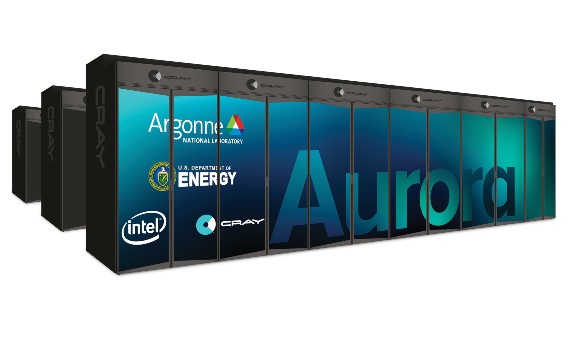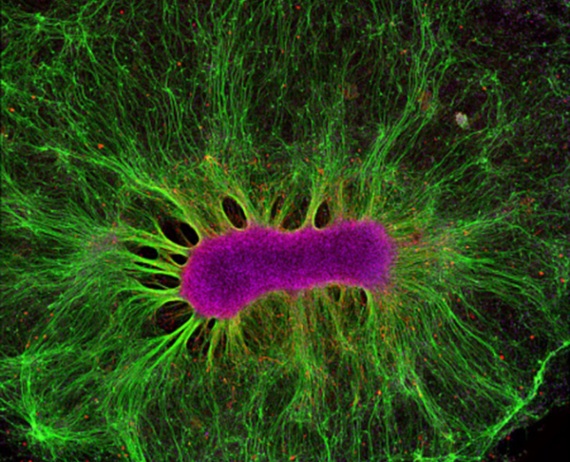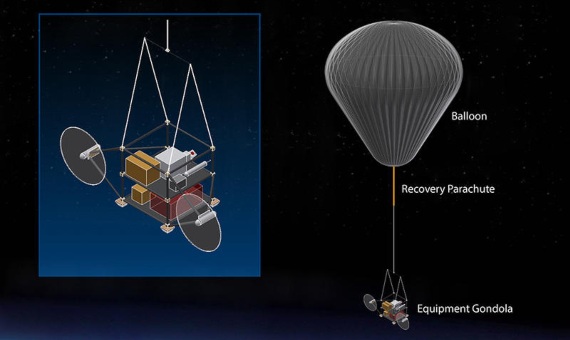Every year, new technologies come into our hands; when it’s time to renew our computer, mobile phone or other devices, or when we undergo some medical procedure, we are always benefiting from the latest advances that have reached the market. However, before we can enjoy the benefits of these innovations, there is a long process of development in which the technologies must demonstrate their potential and viability. Here we review six of the most exciting fields of technology that experts say will be in the spotlight this year.
Supercomputers to match the human brain
The world’s most powerful supercomputers currently achieve processing speeds in excess of one petaflop, or one billion floating point operations per second, depending on the parameter used to measure the power of these computing monsters. Summit, located at Oak Ridge National Laboratory, holds the current record with its 148.6 petaflops, but it won’t be on top for long. The much-anticipated milestone of breaking the exaflop barrier, or one thousand petaflops, should become a reality this year in China, although it is not yet possible to say where exactly, since according to Science magazine three institutions are competing to set up the first machine capable of crossing the threshold to exascale supercomputing.

Other countries are scrambling not to be left behind. The US Department of Energy has commissioned the construction of two exascale supercomputers, Aurora and Frontier, which should be in service by 2021, and the European Union and Japan are working on their own projects. Beyond the increase in power, crossing the exaflop frontier has significant implications as these machines will begin to match the neuronal processing capacity of the human brain, thus providing the definitive backing for initiatives such as the Human Brain Project.
More powerful, cleaner and safer batteries
The 2019 Nobel Prize in Chemistry honoured John B. Goodenough, M. Stanley Whittingham and Akira Yoshino for the development of lithium-ion batteries, the invention that today powers our mobile phones and electric cars. But while this technology developed in the 1980s is still very much alive today, researchers are busily working on finding new portable power sources that overcome current limitations to provide greater range and faster charging.

This could be the year in which the next step is reached: solid-state lithium-ion batteries, in which the liquid or gel electrolyte is replaced with a solid one. This is a field that has been under development for years, but has not yet taken off. According to Nature magazine, during the Tokyo Olympics automotive giant Toyota will present a car powered by this system. The solid-state batteries can store 2.5 times more energy, have a longer life and avoid the toxic compounds and the risk of explosion of current batteries. At the moment, their main disadvantage is their high price.
Thoughts in a Petri dish
The ability of stem cells to recreate any organ or tissue is the fundamental premise of regenerative medicine, a field that holds great therapeutic promise for the coming decades. In recent years, this new biotechnology has led to the manufacture of organoids, tiny functional replicas of organs with a three-dimensional structure, the size of a grain of rice. But when these organoids imitate the brain, an organ capable of thinking, it is understood that the implications are much deeper and more complex.

The recent development of mini-brains has been spectacular: researchers have succeeded in getting neurons to form connections capable of transmitting brain waves and to manufacture their own network of blood vessels, as happens in the real brain. Attempts are now being made to create small robots controlled by mini-brains that are capable of performing simple computations. Brain organoid technology is likely to be a hot topic this year, and not just because of its advances: some experts have likened the activity of mini-brains to a rudimentary form of thinking, and are warning of the urgency to establish ethical standards to regulate this research.
Engineering against climate change
With the climate crisis being the most pressing global problem of our time, it is natural that the booming fields of technology increasingly include the efforts designed to combat this scourge or mitigate its effects. One of these new fields is geo-engineering against climate change. In 2020, the first small-scale experiments could be launched to test a controversial approach: is it possible to offset warming by artificially reducing the amount of solar radiation that reaches the Earth?

The controversy surrounding the potential benefits and harm of these projects has been delaying the start of the Controlled Stratospheric Disturbance Experiment (SCoPEx), led by Harvard University. The idea is to use a propelled balloon to disperse an aerosol of calcium carbonate particles, a material that is in principle harmless, in a small sector of the sky in order to partially block the radiation from the Sun. The results of SCoPEx, together with the information extracted from the simulation models, could lead these investigations toward further progress or to a dead end.
Quantum computers to rule them all
Quantum computing is undoubtedly one of the developing technological areas that year after year attract the attention of experts and the media. But its inclusion on the list of the hottest technologies for 2020 is justified by the recent debate on quantum supremacy, the ability of these machines to perform computations unattainable by conventional computers. Last October, researchers from Google and other institutions published a study claiming to have achieved this milestone by processing an operation with their system in 200 seconds that would have taken the Summit supercomputer 10,000 years to complete. However, those in charge of Summit refuted the claim, explaining that by calibrating their supercomputer differently the same task could be performed in just 2.5 days.
Regardless of the controversy, the achievement of the Google scientists has been compared to the pioneering flight of the Wright brothers, and has revived the race among researchers to conquer the next milestones in quantum computing, leading experts to predict a prodigious year of progress in this field.
Operating devices with the mind
Despite the dazzling progress of electronic devices in recent decades, one thing has not changed since the first personal computers were sold in the 1970s, and that is our way of interacting with them: we still use our hands, which makes these technologies doubly digital, both because of the binary coding system and because of the use of our fingers.

However, the active field of research of brain-computer interfaces aims to free us from this tyranny of the fingers and allow us to operate our devices with commands from our mind. This technology was one of the trends highlighted at the recent Consumer Electronics Show (CES) 2020, held this January in Las Vegas. As an example, the French company NextMind presented a brain-sensing device that attaches to the head and allows users to change the channels of the television or move the characters of a video game by fixing their view on specific places on the screen. The still pending leap to controlling devices with thought guarantees that we will soon see new advances in this line of research.
Comments on this publication